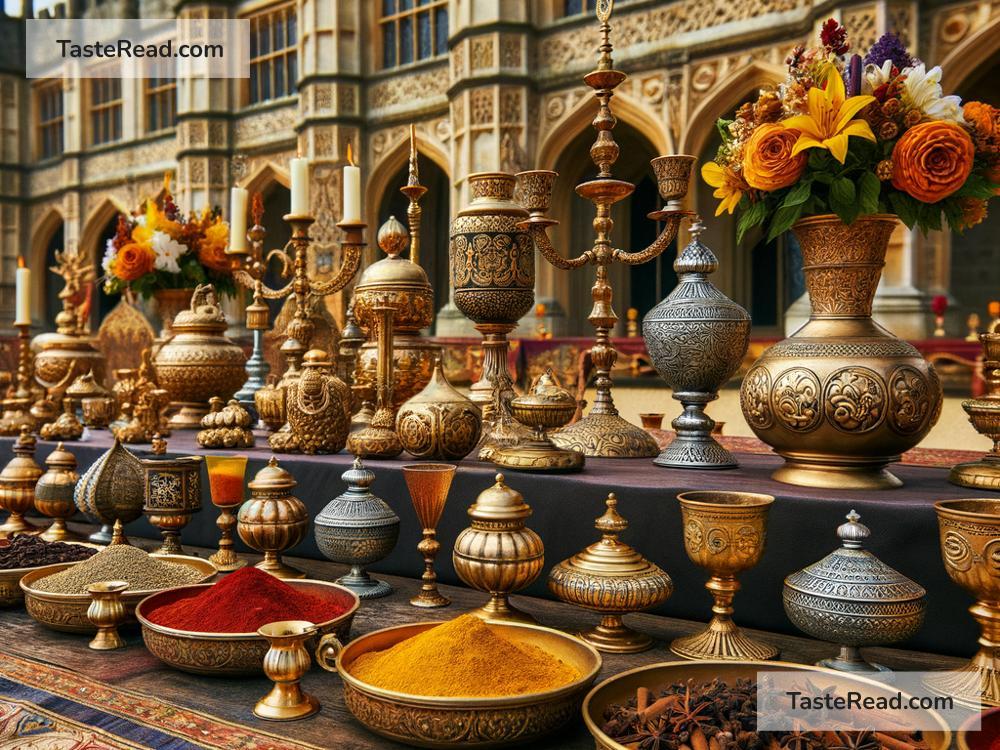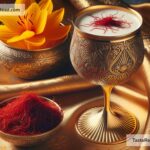How Spices Became Sacred Gifts to Kings
From cinnamon to cloves, spices have always been more than just pantry essentials. Their journey across history tells a fascinating tale of power, wealth, and wonder. For thousands of years, these tiny treasures played a significant role in human culture. Believe it or not, there was a time when spices were considered so valuable that they were gifted to kings and rulers—not just as fancy kitchen ingredients, but as sacred, rare, and precious items.
In this blog, we’ll explore how spices transformed from simple plants to royal gifts that symbolized power, status, and even spiritual connection.
The Birth of Spice Trading
The story of spices begins thousands of years ago in regions like India, the Middle East, and Southeast Asia, where aromatic plants grew naturally. People discovered that these plants could be dried, ground, and used to flavor food. But the magic of spices went beyond taste—they were believed to have medicinal and mystical properties. Ancient civilizations, like the Egyptians and Mesopotamians, used spices in religious ceremonies, healing practices, and even for preserving the dead (think mummies!).
As people started trading goods across regions, spices quickly became one of the most desirable items. They were exotic, hard to find, and had a long shelf life—perfect for trade. Merchants carried them along ancient routes like the Silk Road, connecting Asia, Africa, and Europe. The more distant the spice’s origin, the more valuable it became. Over time, spices gained a reputation for being almost magical.
Spices: More Precious Than Gold
In the ancient world, spices were not seen as ordinary commodities. They were so rare and expensive that they were often reserved for the elite. Kings and queens of far-off lands valued spices not only for their culinary uses but also for their symbolic importance. A pinch of cinnamon or a handful of saffron could signify wealth, power, and divine favor.
Take black pepper, for instance. The Romans referred to it as “black gold.” It became so valuable that it was sometimes used as currency. In the Middle Ages, European nobles would pay their taxes with pepper. Can you imagine settling your bills with a sack of peppercorns instead of money?
Another example is nutmeg. In the 16th century, nutmeg was so coveted that wars were fought over the small Indonesian islands where it was grown. This tiny spice was considered a luxury fit for royalty and was often presented as a gift to kings. Its scarcity and intoxicating aroma made it an irresistible offering.
Spices as Sacred Symbols
In many cultures, spices held deep spiritual significance. They were believed to be gifts from the gods, capable of healing sickness, warding off evil, and protecting the soul. This spiritual aspect made them perfect offerings to kings and rulers, who were often seen as divine or godly figures themselves.
For example, the Bible recounts the story of the three wise men who brought sacred gifts to baby Jesus: gold, frankincense, and myrrh. While gold is a precious metal, frankincense and myrrh are both spices derived from trees. These aromatic resins were used in religious rituals and were considered symbols of purity and divinity. Such stories highlight how spices were connected to the sacred and the royal.
In ancient India, spices like turmeric and cardamom were associated with health and spirituality. They played an important role in rituals and ceremonies, making them ideal gifts for kings who were regarded as protectors of their people and representatives of higher powers. Offering these spices to rulers was not just an act of generosity but a way to honor their divine role.
Exotic Gifts for Royal Courts
By the time of the Middle Ages, spice trading had become a flourishing business. Spices like cloves, cinnamon, ginger, and saffron were brought to Europe from the distant lands of Asia and Africa. These journeys were often perilous, involving long voyages by sea and treacherous desert crossings. The rarity and effort required to acquire spices made them priceless.
When traders returned with their spice-filled ships, wealthy merchants and governments often reserved the best supplies for royalty. Kings and emperors didn’t merely buy spices—they received them as luxurious gifts. Ambassadors from foreign lands would present spice boxes to rulers as signs of respect and goodwill. These gifts could promote political alliances or signal friendship between nations.
The packaging was often as extravagant as the spices themselves. Golden jars, ornately carved boxes, and silk pouches stored these treasures, emphasizing their value. Receiving spices as a gift was a moment of prestige, showing that the recipient was deemed worthy of such magnificence.
Spices and the Modern World
Today, spices are much more accessible, and we often take them for granted. A sprinkle of cinnamon on toast or a dash of turmeric in curry no longer feels magical. But it’s important to remember the incredible history behind these everyday ingredients. Spices shaped global trade, sparked exploration, and even influenced politics.
Though they are no longer reserved for kings, the legacy of spices as sacred gifts lives on. Every time we reach for a pinch of spice in the kitchen, we are connecting to thousands of years of human history—a time when these little flavor-packed treasures were fit for royalty.
Conclusion
Spices were more than just food enhancers in the ancient world—they were symbols of wealth, power, and spirituality. Their rarity, exotic origins, and unique characteristics made them precious gifts for kings and rulers. Whether offered as diplomatic tokens or sacred tributes, spices influenced cultures, economies, and even wars.
So, the next time you enjoy the warm scent of cinnamon or the vibrant color of turmeric, take a moment to appreciate their history. These humble ingredients once ruled empires and graced the tables of kings. They are a reminder that even the smallest things can hold incredible value.


